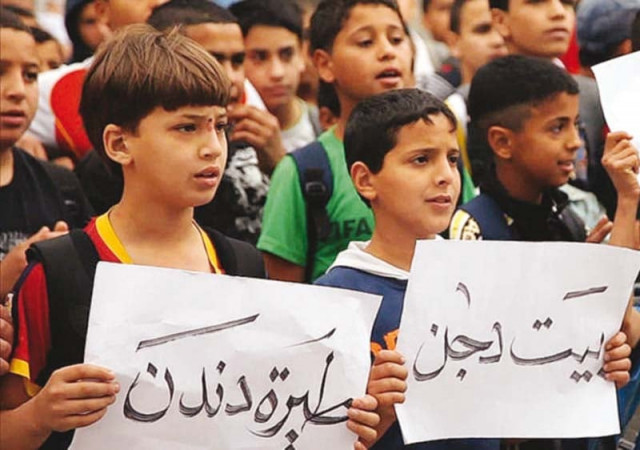Documentary review: This is my land - The two faces of history
This is My Land shows how the version of history you choose to believe might not be entirely up to you

This is My Land shows how the version of history you choose to believe might not be entirely up to you.
What she finds is hardly surprising. History on both sides is seen and taught through a lens which tilts events in their favour, while making ‘the other’ look like a ruthless and unforgiving enemy. Moreover, national identity is derived as much from love for one’s own land as it is from a deep hatred of those who want to take it away.
By documenting school sessions and interviewing teachers along with students, Erde shows viewers both faces of history and how the version of reality you choose to believe is taught to you at a very young age — usually in classrooms. For example, in a Palestinian classroom, you can see children being told how it must feel for an Arab to be in an Israeli prison. On the other hand, in an Israeli classroom, students share fears of Arabs taking their land away and reluctance at the idea of reconciliation with the Palestinians.
All the schools that Erde visits throughout the film are either exclusively for Israeli or Palestinian kids, with the exception of the Neve Shalom/Wahat al-Salam bilingual elementary school, where an Israeli and Palestinian teacher teach Jewish and Arab kids side-by-side. For me, the dynamics in this school were the highlight of the film but were not given enough time or attention. The interactions and opinions from the other five schools in comparison were not new or surprising. Rather, in my opinion, it was this school — where proponents of opposing sides of history were engaging and having a conversation about one of the most disputed narratives — that deserved an entire documentary on its own.

As a Pakistani, who has often been conflicted by the jingoistic and anti-India version of history taught in our classrooms and vice versa, the subject of the film definitely struck a chord. However, at times, the treatment of the subject by the film-maker seemed too superficial. For example, there was little character building since every student and teacher only got a few minutes of screen time. So even though what they are saying is hugely impactful, one ends up feeling very little since there is little backstory and one barely knows anything about these people other than their historical and geographical lineage.
The running time of the film, which stretched to 93 minutes, was also a tad too long and felt like a history lesson at times. Overall, if you are interested in identity politics, This is My Land is a decent watch due to the important choice of subject. However, if you are a fan of good documentaries, give this one a miss since it fails on many counts of storytelling.

Published in The Express Tribune, Sunday Magazine, July 5th, 2015.



















COMMENTS
Comments are moderated and generally will be posted if they are on-topic and not abusive.
For more information, please see our Comments FAQ